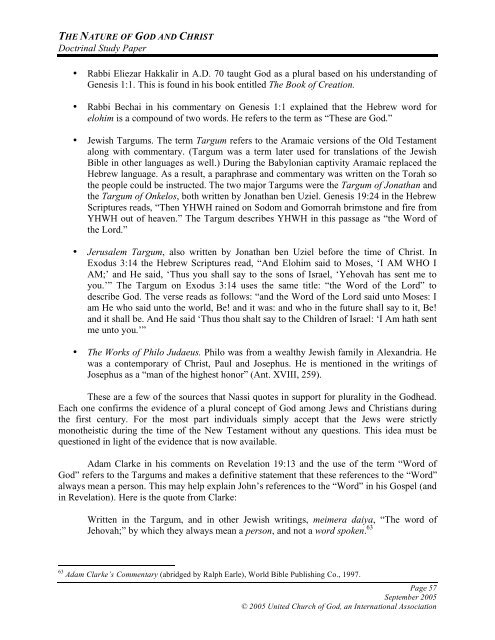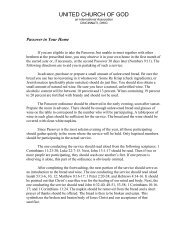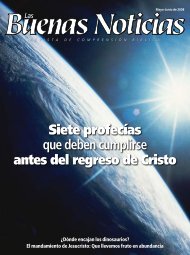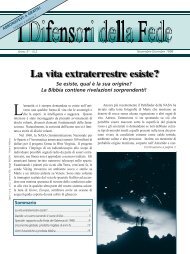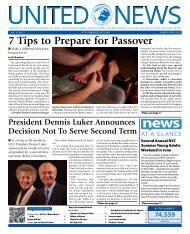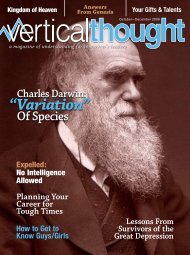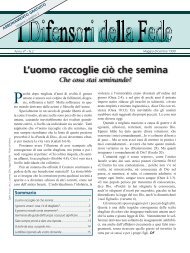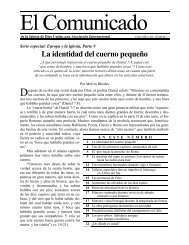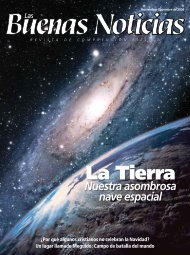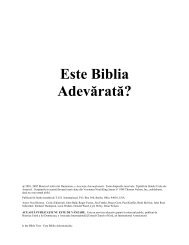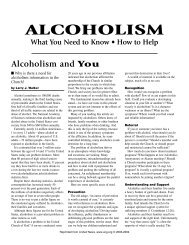The Nature of God and Christ - Members Site - United Church of God
The Nature of God and Christ - Members Site - United Church of God
The Nature of God and Christ - Members Site - United Church of God
- No tags were found...
Create successful ePaper yourself
Turn your PDF publications into a flip-book with our unique Google optimized e-Paper software.
THE NATURE OF GOD AND CHRISTDoctrinal Study Paper• Rabbi Eliezar Hakkalir in A.D. 70 taught <strong>God</strong> as a plural based on his underst<strong>and</strong>ing <strong>of</strong>Genesis 1:1. This is found in his book entitled <strong>The</strong> Book <strong>of</strong> Creation.• Rabbi Bechai in his commentary on Genesis 1:1 explained that the Hebrew word forelohim is a compound <strong>of</strong> two words. He refers to the term as “<strong>The</strong>se are <strong>God</strong>.”• Jewish Targums. <strong>The</strong> term Targum refers to the Aramaic versions <strong>of</strong> the Old Testamentalong with commentary. (Targum was a term later used for translations <strong>of</strong> the JewishBible in other languages as well.) During the Babylonian captivity Aramaic replaced theHebrew language. As a result, a paraphrase <strong>and</strong> commentary was written on the Torah sothe people could be instructed. <strong>The</strong> two major Targums were the Targum <strong>of</strong> Jonathan <strong>and</strong>the Targum <strong>of</strong> Onkelos, both written by Jonathan ben Uziel. Genesis 19:24 in the HebrewScriptures reads, “<strong>The</strong>n YHWH rained on Sodom <strong>and</strong> Gomorrah brimstone <strong>and</strong> fire fromYHWH out <strong>of</strong> heaven.” <strong>The</strong> Targum describes YHWH in this passage as “the Word <strong>of</strong>the Lord.”• Jerusalem Targum, also written by Jonathan ben Uziel before the time <strong>of</strong> <strong>Christ</strong>. InExodus 3:14 the Hebrew Scriptures read, “And Elohim said to Moses, ‘I AM WHO IAM;’ <strong>and</strong> He said, ‘Thus you shall say to the sons <strong>of</strong> Israel, ‘Yehovah has sent me toyou.’” <strong>The</strong> Targum on Exodus 3:14 uses the same title: “the Word <strong>of</strong> the Lord” todescribe <strong>God</strong>. <strong>The</strong> verse reads as follows: “<strong>and</strong> the Word <strong>of</strong> the Lord said unto Moses: Iam He who said unto the world, Be! <strong>and</strong> it was: <strong>and</strong> who in the future shall say to it, Be!<strong>and</strong> it shall be. And He said ‘Thus thou shalt say to the Children <strong>of</strong> Israel: ‘I Am hath sentme unto you.’”• <strong>The</strong> Works <strong>of</strong> Philo Judaeus. Philo was from a wealthy Jewish family in Alex<strong>and</strong>ria. Hewas a contemporary <strong>of</strong> <strong>Christ</strong>, Paul <strong>and</strong> Josephus. He is mentioned in the writings <strong>of</strong>Josephus as a “man <strong>of</strong> the highest honor” (Ant. XVIII, 259).<strong>The</strong>se are a few <strong>of</strong> the sources that Nassi quotes in support for plurality in the <strong>God</strong>head.Each one confirms the evidence <strong>of</strong> a plural concept <strong>of</strong> <strong>God</strong> among Jews <strong>and</strong> <strong>Christ</strong>ians duringthe first century. For the most part individuals simply accept that the Jews were strictlymonotheistic during the time <strong>of</strong> the New Testament without any questions. This idea must bequestioned in light <strong>of</strong> the evidence that is now available.Adam Clarke in his comments on Revelation 19:13 <strong>and</strong> the use <strong>of</strong> the term “Word <strong>of</strong><strong>God</strong>” refers to the Targums <strong>and</strong> makes a definitive statement that these references to the “Word”always mean a person. This may help explain John’s references to the “Word” in his Gospel (<strong>and</strong>in Revelation). Here is the quote from Clarke:Written in the Targum, <strong>and</strong> in other Jewish writings, meimera daiya, “<strong>The</strong> word <strong>of</strong>Jehovah;” by which they always mean a person, <strong>and</strong> not a word spoken. 6363 Adam Clarke’s Commentary (abridged by Ralph Earle), World Bible Publishing Co., 1997.Page 57September 2005© 2005 <strong>United</strong> <strong>Church</strong> <strong>of</strong> <strong>God</strong>, an International Association


